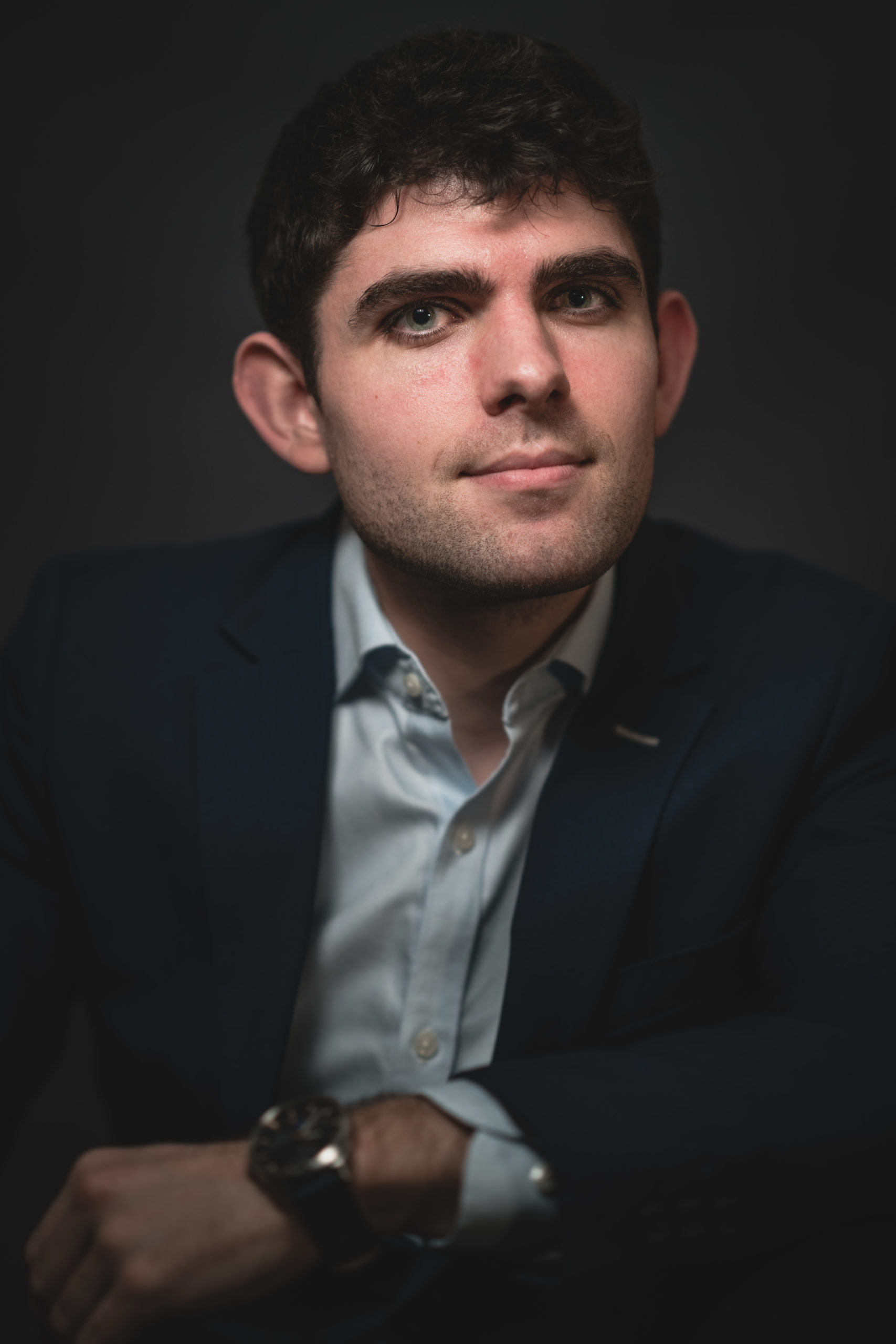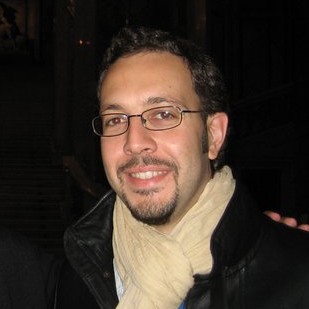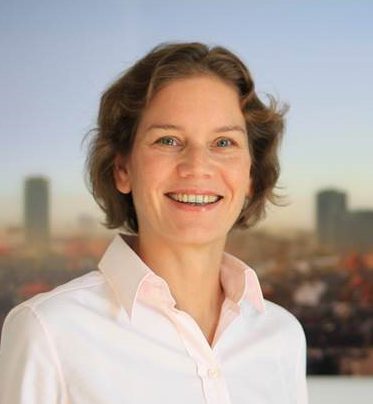MathFinance Digital Conference
1 October 2020
Venue:Webex
Follow us on Twitter
#MathFinanceConference

Testimonials
The MathFinance conference provides an excellent environment to learn about recent developments and networking with leading experts from both industry and academia
Enjoyable atmosphere, lots of networking, expert speakers, way to learn developments in the industry
The conference is a great opportunity to meet interesting people and develop new ideas on recent market trends. Special thanks to the organizers, they did a very good job

Dr. Bruno Dupire
Head of Quantitative Research
Bloomberg
The Geometry of Money and the Perils of Parameterization
Markets trade thousands of underlying, each one with tens or even hundreds of options, quoted throughout the day. Needless to say, the quotes are not generated manually. They are automated and derived from a functional form with a few parameters. If we know this parameterization, we know in advance how the prices tomorrow of many traded securities will belong to a low dimensional (number of parameters) manifold in a high dimensional (number of securities). If the vector of today prices does not belong to the convex hull of the manifold it creates arbitrage. We examine market practice (Black-Scholes, stochastic volatility models, interest rate interpolation by piecewise constant instantaneous forward rates converging implied volatility for extreme strikes in FX…) and show that many violate the no arbitrage condition
Bruno Dupire is head of Quantitative Research at Bloomberg L.P., which he joined in 2004. Prior to this assignment in New York, he has headed the Derivatives Research teams at Société Générale, Paribas Capital Markets and Nikko Financial Products where he was a Managing Director. He is best known for having pioneered the widely used Local Volatility model (simplest extension of the Black-Scholes-Merton model to fit all option prices) in 1993 and the Functional Itô Calculus (framework for path dependency) in 2009. He is a Fellow and Adjunct Professor at NYU and he is in the Risk magazine “Hall of Fame”. He is the recipient of the 2006 “Cutting edge research” award of Wilmott Magazine and of the Risk Magazine “Lifetime Achievement” award for 2008

Dr. Aitor Mugurza
Head of Quantitative Modelling and Data Analytics
Synergis
A kernel-free particle method: smile problem resolved
We present a novel Monte Carlo based LSV calibration algorithm that applies to all stochastic volatility models, including the non-Markovian rough volatility family. Our framework overcomes the limitations of the particle method proposed by Guyon and Henry-Labordère (2012) and theoretically guarantees a variance reduction without additional computational complexity. Specifically, we obtain a closed-form and exact calibration method that allows us to remove the dependency on both the kernel function and bandwidth parameter. This makes the algorithm more robust and less prone to errors or instabilities in a production environment. We test the efficiency of our algorithm on various hybrid (rough) local stochastic volatility models
Aitor Muguruza is the Head of Quantitative Modelling and Data Analytics at Synergis. He previously served as a Quantitative Research Analyst at Natixis, where he worked in the equities division. His research interests include stochastic volatility modelling, machine learning, and AI in finance. Risk Magazine awarded Aitor the 2020 rising star award in quantitative finance for his seminal paper, “Deep Learning Volatility”.

Dr. Adil Reghai
Head of Quantitative Research, Equity and Commodity Markets
Natixis
Fast and Fair Lsv pricing : back to basics
In this presentation we go back to basics . P&L explanation . We show how to compute compute exotic Greeks explain the lab lv impact and give a fast pricing formula for all products highlighting three classic examples
Adil Reghaï joined Natixis since 2008 where he is Head of Quantitative Research for Equities and Commodities. Graduated from Ecole Polytechnique (X92) and Ecole des Mines (P94), Paris, Adil was Head of Quantitative Research at Merrill Lynch, BNP Paribas and Calyon. He attended conferences on mathematical finance and has written numerous papers and articles.
He is the author of many scientific publications and a book Quantitative finance: back to basic principles http://www.palgrave.com/page/detail/quantitative-finance-/?isb=9781137414496
He is a lecturer at the mathematical master in Nice (SKEMA – France).

Dr. Frédéric Bossens
Quant
ING & MathFinance
Mixed Local-Vol model : as simple a Stochastic-Local Vol model as it gets
Stochastic volatility is all about generating a set of possible future scenarios for the volatility. The Mixed Local-Vol (MLV) approach is as simple a way of doing that as it gets. While being conceptually relatively simple (the stochastic volatility component is reduced to a small number of discrete states), MLV shares in fact many desirable features with its full-fledged Stochastic-Local-Volatility (SLV) sibling.
MLV seems to be the industry standard to price FX 1st generation exotic options: it is fast and provides accurate prices and risks.
In this presentations, we explore the main theoretical and practical aspects of MLV, comparing it to well-known benchmarks as Local-Vol (Dupire), Vanna-Volga, Stochastic Vol (Heston) and Stochastic-Local-Vol models.
Frédéric has worked in the field of financial modelling for more than 13 years, in Brussels (Fortis), London (Bnp-Paribas) and Singapore (Standard Chartered Bank). As a seasoned professional, Frédéric’s expertise is widely recognized by is pairs and co-workers. He used to teach an introductory course on financial modelling at University of Toulouse and co-authored several journal papers in the fields of financial derivatives pricing and control theory. His paper “Vanna-Volga Methods Applied to FX Derivatives: From Theory to Market Practice” became a flagship publication in the world of FX quantitative finance.
He holds a Garp-FRM certification (Financial Risk Manager).
Frédéric earned his PhD in mechanical and electrical engineering from University of Brussels (ULB).

Dr. Nils Detering
Assistant Professor, Department of Statistics & Applied Probability
University of California, Santa Barbara
We price European-style options written on forward contracts in a commodity market, which we model with a state-dependent infinite-dimensional Heath-Jarrow-Morton (HJM) approach. We introduce a new class of volatility operators which map the square integrable noise into the Filipović space of forward curves, and we specify a deterministic parametrized version of it. For calibration purposes, we train a neural network to approximate the option price as a function of the model parameters. We then use it to calibrate the HJM parameters starting from (simulated) option market data. Finally we introduce a new loss function that takes into account bid and ask prices and offers a solution to calibration in illiquid markets. A key issue discovered is that the trained neural network might be non-injective, which could potentially lead to poor accuracy in calibrating the forward curve parameters, even when showing a high degree of accuracy in recovering the prices. This reveals that the original meaning of the parameters gets somehow lost in the approximation.
Nils Detering is a tenure track assistant professor in Financial Mathematics and Probability at the University of California, Santa Barbara (UCSB). Prior to joining UCSB Nils was a post-doctoral researcher at the University of Munich (Germany). During his post-doctoral period he was also a visiting fellow at the Newton institute in Cambridge (UK) and at the Institute for Pure and Applied Mathematics at UCLA. Nils holds a PhD in Quantitative Finance from Frankfurt School of Finance and Management and a Masters degree in pure mathematics from the University of Goettingen (Germany). Nils has several years of experience in the financial industry as a trader, structurer and financial engineer.
Nils research is mainly on asymptotic methods (large number of market participants/financial institutions) to analyse systemic risk in the financial system, often facilitating random graphs. Additional more recent research interests are in infinite dimensional stochastic analysis and its applications to the modelling electricity markets.

Dr. Jan Vecer
Professor of Quantitative Finance
Charles University, Prague
Optimal Distributional Trading Gain: Generalizations of Merton’s Portfolio Problem with Implications to Bayesian Statistics
This presentation considers multiple market agents who have distinct distributional opinions about the state price density. We first determine the optimal trading positions of a utility maximizing market taker who trades Arrow-Debreu securities for prices set by the market maker.
We use calculus of variations to determine the solution of this problem for a general utility function. The choice of the logarithmic utility function leads to a solution in terms of a likelihood ratio of the densities corresponding to the market taker and the market maker and the resulting optimal utility is the Kullback-Leibler divergence. In particular, we obtain a trivial solution for Merton’s portfolio problem in the traditional geometric Brownian motion model and and we show its immediate extension to the multivariate case. A further extension gives a solution for the market driven by a geometric Poisson process. In a market without the market maker, the distributional opinions of market takers reach an equilibrium in the form of the linear mixture of the distributions. We show that when the the result of the outcome is observed, the profit and loss from trading updates agents’ bankrolls in a Bayesian fashion, which provides one to one correspondence for the logarithmic utility maximazers’ profits and Bayesian statistics. We extend these results to the continuous time setup and show that the bankrolls of agents following Merton optimal portfolio strategy evolve as a posterior distribution.
Prof. Jan Vecer works at the Charles University in Prague since September 2015 where he teaches courses in mathematical finance and stochastic analysis. From 2010 to 2015 he was a Professor of Finance at the Frankfurt School of Finance and Management. Professor Jan Vecer received his PhD in Mathematical Finance from Carnegie Mellon University. He held academic jobs at the University of Michigan and Kyoto University and at Columbia University where he was promoted to the rank of the Associate Professor in 2006. He works in various areas within the fields of Financial Statistics, Financial Engineering and Applied Probability. These areas include Option Pricing, Optimal Trading Strategies, Stochastic Optimal Control, and Stochastic Processes. The method he developed for pricing Asian Options is widely used both in academia and in the finance industry as a benchmark. He is an author of a monograph “Stochastic Finance: A Numeraire Approach” published by CRC Press. He has given about 100 invited talks in the conferences and in the world class universities, such as Harvard, Princeton, Stanford, University of Chicago, Cornell, Oxford, Cambridge, Humboldt, or Tsukuba.

Dr. Patrick Kuppinger
Head Quant Group
Bank Vontobel AG
Multi SLV models in both Equity and FX contexts depend on certain deep-in-the-model parameters that are in practice often overlooked. In particular, the correlations between the stochastic variance processes play a significant role when pricing and risk managing popular products such as autocallables or FX correlation swaps. Ignoring these parameters may not only lead to significant mis-pricing of those products, but also mean giving up valuable degrees of freedom that could be used for calibration purposes
Patrick Kuppinger is currently Head Quant Group at Bank Vontobel AG. Previously, he worked in model validation roles at UBS. During his past life at university, his area of research was multi-antenna communication theory and signal processing. Lately, he has focused more on multi-asset derivative pricing, primarily looking into multi-SLV for equity and local stochastic correlation models for FX. His research is published in Wilmott and Risk magazine

Dr. Kay Pilz
CEO
Kinetic Mind
Machine Learning for Data Generation and Hedging in Finance
This talk presents applications of machine learning based methods to data generation and deep hedging in the context of trading and risk management. It is demonstrated how generative neural networks like variational autoencoders can be used as additional source for creating realistic market data like forward curves and volatility surfaces.
Kay Frederik Pilz is founder and managing partner of kinetic mind GmbH, a company located in Germany, providing services and solutions in Predictive Analytics and Quantitative Finance. Prior to his current position, he worked as a Senior Quantitative Analyst for the energy provider STEAG and E.ON Energy Trading, as well as for Sal. Oppenheim, an Investment Bank in Frankfurt, Germany. Kay develops and implements pricing and hedging functionalities for exotic derivatives on equities, precious metals and energy commodities. As a Senior Research Associate at the University of Technology in Sydney, Australia, he worked on a project on hybrid commodity and interest rate modelling, as well as on exotic option pricing in stochastic volatility models. Kay graduated in Mathematics from the University of Frankfurt and holds a PhD in Mathematical Statistics from the University of Bochum.

Dr. Jesper Andreasen
Head, Quant Research Development
Saxo Bank
Local Volatility in Multi Dimensions
Jesper Andreasen, aka the Kwant Daddy, is universal head of the SupaPhly Analytics team at Saxo Bank. Jesper’s career spans over 20 years in the derivatives industry including senior roles at General Re Financial Products, Bank of America, Nordea and Danske Bank. Jesper has twice received Risk Magazine’s quant of year award. He is an honorary professor of mathematical finance at the HC Ørsted Institute of Copenhagen University and holds a PhD in the subject from Aarhus University.

Prof. Rolf Poulsen
University of Copenhagen
A tour de force of finance-related poor maths; from social media over financial institutions to public administration. Names will be named; is one of them yours?

Dr. Antoine Savine
Quantitative Research
Superfly Analytics, Danske Bank
Differential machine learning combines automatic adjoint differentiation (AAD) with modern machine learning (ML) in the context of risk management of financial Derivatives. We introduce novel algorithms for training fast, accurate pricing and risk approximations, online, in real-time, with convergence guarantees. Our machinery is applicable to arbitrary Derivatives instruments or trading books, under arbitrary stochastic models of the underlying market variables. It effectively resolves computational bottlenecks of Derivatives risk reports and capital calculations.
Differential ML is a general extension of supervised learning, where ML models are trained on examples of not only inputs and labels but also differentials of labels wrt inputs. It is also applicable in many situations outside finance, where high-quality first-order derivatives wrt training inputs are available. Applications in Physics, for example, may leverage differentials known from first principles to learn function approximations more effectively.
In finance, AAD computes pathwise differentials with remarkable efficacy so differential ML algorithms provide extremely effective pricing and risk approximations. We can produce fast analytics in models too complex for closed-form solutions, extract the risk factors of complex transactions and trading books, and effectively compute risk management metrics like reports across a large number of scenarios, backtesting and simulation of hedge strategies, or regulations like XVA, CCR, FRTB or SIMM-MVA.
TensorFlow implementation is available on https://github.com/differential-machine-learning
Antoine Savine and Brian Huge are affiliated with Superfly Analytics at Danske Bank, winner of the RiskMinds 2019 award Excellence in Risk Management and Modelling. Prior to joining Danske Bank in 2013, Antoine held multiple leadership positions in quantitative finance, including Head of Research at BNP-Paribas. He also teaches volatility and computational finance at Copenhagen University. He is best known for his work on volatility and rates, and he was influential in the wide adoption of cashflow scripting in finance. At Danske Bank, Antoine wrote the book on AAD with Wiley and was a key contributor to the bank’s XVA system, winner of the In-House System of the Year 2015 Risk award.

Dr. Brian Huge
Quantitative Research
Superfly Analytics, Danske Bank
Differential machine learning combines automatic adjoint differentiation (AAD) with modern machine learning (ML) in the context of risk management of financial Derivatives. We introduce novel algorithms for training fast, accurate pricing and risk approximations, online, in real-time, with convergence guarantees. Our machinery is applicable to arbitrary Derivatives instruments or trading books, under arbitrary stochastic models of the underlying market variables. It effectively resolves computational bottlenecks of Derivatives risk reports and capital calculations.
Differential ML is a general extension of supervised learning, where ML models are trained on examples of not only inputs and labels but also differentials of labels wrt inputs. It is also applicable in many situations outside finance, where high-quality first-order derivatives wrt training inputs are available. Applications in Physics, for example, may leverage differentials known from first principles to learn function approximations more effectively.
In finance, AAD computes pathwise differentials with remarkable efficacy so differential ML algorithms provide extremely effective pricing and risk approximations. We can produce fast analytics in models too complex for closed-form solutions, extract the risk factors of complex transactions and trading books, and effectively compute risk management metrics like reports across a large number of scenarios, backtesting and simulation of hedge strategies, or regulations like XVA, CCR, FRTB or SIMM-MVA.
TensorFlow implementation is available on https://github.com/differential-machine-learning
Brian works in Danske Bank quantitative research since 2001 and produced very noticeable contributions in quantitative finance with Jesper Andreasen, including the iconic ZABR: expansion for the masses, or the LVI volatility interpolation method coupled with the Random Grid algorithm, winner of the Quant of the Year 2012 Risk award. All those algorithms are implemented in Superfly, Danske Bank’s proprietary risk management platform, and used every day for the management of the bank’s trading books.

Dr. Martin Keller-Ressel
Professor Stochastic Analysis
Technical University Dresden
Semi-Static and Sparse Variance-Optimal Hedging“ – Among theoretical results, we show that a variance swap can be reasonably hedged by three static option positions and dynamic hedging in the underlying
Martin Keller-Ressel received his Diploma in Computational Mathematics from TU Wien in 2005, followed by his PhD in 2009.
After positions at ETH Zurich and TU Berlin he was appointed professor at TU Dresden in 2013 and has received funding from the Excellence Initiative of the German Research Foundation to establish a new research group in stochastic calculus and financial mathematics.
Martin Keller-Ressel’s research interests are stochastic volatility, interest rate models, financial networks and dependency modelling. His research has been published in leading scientific journals such as Mathematical Finance, Quantitative Finance and Annals of Statistics

Prof. Antonis Papapantoleon
Assistant Professor
National Technical University Athens
Model-free bounds for multi-asset options using option-implied information
We consider derivatives written on multiple underlyings in a one-period financial market, and we are interested in the computation of model-free upper and lower bounds for their arbitrage-free prices. We work in a completely realistic setting, in that we only assume the knowledge of traded prices for other single- and multi-asset derivatives, and even allow for the presence of bid-ask spread in these prices. We provide a fundamental theorem of asset pricing for this market model, as well as a superhedging duality result, that allows to transform the abstract maximization problem over probability measures into a more tractable minimization problem over vectors, subject to certain constraints. Then, we recast this problem into a linear semi-infinite optimization problem, and provide two algorithms for its solution. These algorithms provide upper and lower bounds for the prices that are ε-optimal, as well as a characterization of the optimal pricing measures. Moreover, these algorithms are efficient and allow the computation of bounds in high-dimensional scenarios (e.g. when d=60). Numerical experiments using synthetic data showcase the efficiency of these algorithms, while they also allow to understand the reduction of model-risk by including additional information, in the form of known derivative prices.
Antonis Papapantoleon is an Assistant Professor of Mathematics at the
National Technical University of Athens and an Affiliated Researcher at
the Foundation for Research and Technology Hellas. Before moving to
Athens, he was a Juniorprofessor at TU Berlin, while his practical
experience includes nine months at Commerzbank and two years at the
Quantitative Products Laboratory, a joint venture between Deutsche Bank,
HU Berlin and TU Berlin. He received his PhD in Mathematics from the
University of Freiburg. His research interests include applications of
Lévy process in finance, term structure modeling, and model-free methods
in finance. His research has been published in leading journals such as
Mathematical Finance, Mathematics of Operations Research, and the
Transactions of the AMS, while he has co-edited a book on “Advanced
Modelling in Mathematical Finance” (Springer, 2016).

Prof.Dr. Thorsten Schmidt
Senior Financial Engineer
MathFinance
The valuation of variable annuities
In this work we analyze the valuation of variable annuities. We utilize a market-consistent framework and the QP-rule for this. The variable annuiity may have several features, including surrender benefiit. The latter is the most challenging part and we discuss model risk and valuation issues. The valuation in a hybrid Levy model is illustrated which allows on the one side the perfect calibration to the financial market and on the other side the use of statistical information on insurance-related quantitiies. Also the hedging scheme is discussed.
The talk bases on joint work with Philippe Artzner, Laura Ballotta, Ernst Eberlein, Karl-Theodor Eisele, and Raghid Zeineddine.
Thorsten Schmidt is Professor for Mathematical Stochastics at University Freiburg (successor of Ernst Eberlein) and Senior Financial Engineer at MathFinance AG. From 2017-2019 he was fellow of the Freiburg institute of Advanced Studies (FRIAS). Prior to this he was professor for Mathematical Finance at Chemnitz University of Technology since 2008, held a replacement Professorship from Technical University Munich in 2008 and was Associate Professor at University of Leipzig from 2004 onwards.
He is currently editor of a volume of Risks on the topic „Machine Learning in Finance, Insurance and Risk Management

Dr.Natalie Packham
Professor of Mathematics and Statistics
Berlin School of Economics and Law
Title: Correlation stress testing of stock and credit portfolios
Abstract: We develop a general approach for stress testing correlations in stock and credit portfolios. Using Bayesian variable selection methods, we build a sparse factor structure, linking individual names or stocks with country and industry factors. Based on methods from modelling correlations in interest rate modelling, especially in the context of market models, we calibrate a parametric correlation matrix, where correlations of stocks / names are represented as a function of the country and industry factors. Economically meaningful stress scenarios on the factors can then be translated into stressed correlations. The method also lends itself as a reverse tress testing framework: using e.g. the Mahalanobis distance on the joint risk factor distribution, allows to infer worst-case correlation scenarios. We give examples of stress tests including an application to analyse a USD 6.2 bn loss by JP Morgan in 2012, known as the “London Whale”. (This is joint work with Fabian Woebbeking)
Natalie Packham is Professor of Mathematics and Statistics at Berlin School of Economics and Law. Natalie has several years of industry experience as a front office software engineer at an investment bank, and is frequently involved in industry-related research and consulting projects. Her research expertise includes Mathematical Finance, Financial Risk Management and Computational Finance, and her academic work has been published in Mathematical Finance, Finance & Stochastics, Quantitative Finance, Journal of Applied Probability and many other academic journals. She is associate editor of “Methodology and Computing in Applied Probability” and co-chair of the GARP Research Fellowship Advisory Board. Natalie holds an M.Sc. in Computer Science from the University of Bonn, a Master’s degree in Banking & Finance from Frankfurt School, and a Ph.D. in Quantitative Finance from Frankfurt School.
